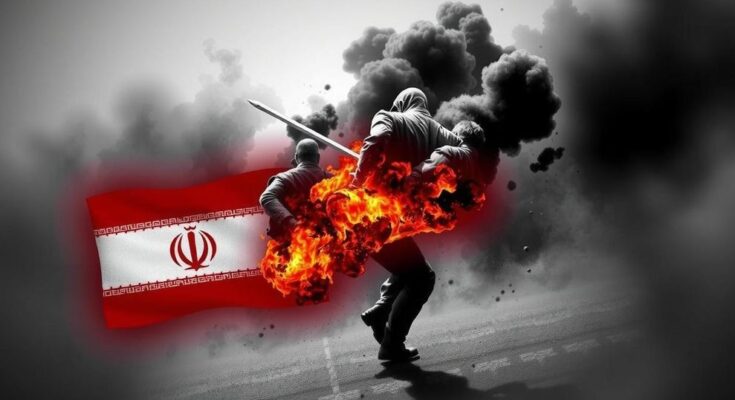Iran firmly backs Syrian President Bashar al-Assad as opposition forces capture territory. Despite hints of troop deployment, no significant mobilization is evident. Discussions among Iran, Russia, and Turkey signal Iran’s commitment against foreign-backed opposition. The conflict is viewed as geopolitically motivated, with regional implications growing amid tensions involving Israel and Gaza.
Iran maintains its staunch support for the Syrian government led by President Bashar al-Assad as the Syrian opposition gains ground in a renewed offensive. Although Iranian officials have alluded to the possibility of deploying troops to Syria, there have been no indications of a large-scale mobilization thus far. Iran’s Foreign Minister Abbas Araghchi emphasized the necessity for political dialogue between the Syrian government and legitimate opposition factions during discussions with representatives from Russia and Turkey.
The opposition’s military campaign, initiated from Idlib, has resulted in significant territorial gains, heightening tensions within the region. HTS, the dominant faction in Idlib, has sought to distance itself from its radical roots and engaged in a media campaign to reshape its public image. The changing dynamics of the conflict are now more geopolitically driven compared to earlier phases, prompting Iran to reassess its position amid challenges from Turkish-backed groups.
Despite arduous discussions with Turkey and a mixed response regarding the Syrian opposition, Iranian officials have stated that they will not tolerate foreign-supported rebel factions undermining Syrian sovereignty. Additionally, concerns linger over the implications of the conflict spilling into broader regional instability, particularly in light of ongoing hostilities between Israel and Hamas in Gaza. The potential for direct Iranian military involvement could suggest a profound shift in strategy, necessitating further examination of Iran’s response to this escalating conflict.
The Syrian conflict, which began in 2011, has evolved into a complex battleground involving various domestic and foreign actors. Iran has historically supported the Assad regime as part of its broader strategy to maintain influence in the Levant and counter western and Israeli positions in the region. Recent events have seen opposition forces increasing their military operations against Assad, prompting discussions among Iranian, Russian, and Turkish officials. The situation remains precarious, with the threat of regional instability looming due to ongoing conflicts involving Israel and various militia groups.
Iran’s position in the Syrian conflict is underscored by its unwavering support for Assad, yet the prospect of deploying troops raises critical questions about its military strategy and regional ambitions. With the opposition gains, Iran faces pressure to reassess its tactics, especially in light of Turkey’s backing of anti-Assad factions. As the situation develops, continued diplomatic efforts and military readiness may define Iran’s role in the unfolding crisis.
Original Source: www.aljazeera.com




